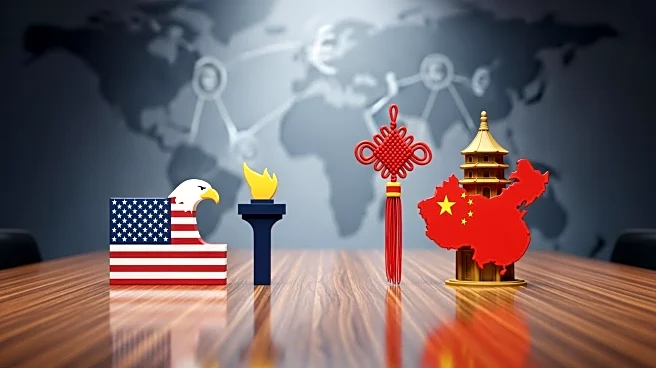What's Happening?
The United States and China are preparing for a new round of trade talks in Kuala Lumpur, Malaysia, amid ongoing tensions over export controls. The U.S. is considering leveraging its software export strengths
in response to China's restrictions on rare earth exports. Analysts suggest that while Beijing is unlikely to make major concessions, progress could be made on issues like soybeans or fentanyl. The talks are seen as a strategic move by the U.S. to pressure China ahead of a potential summit between President Trump and Chinese President Xi Jinping.
Why It's Important?
These trade talks are crucial as they could pave the way for a high-stakes summit between the leaders of the world's two largest economies. The outcome could significantly impact global trade dynamics, particularly in the technology and manufacturing sectors. The U.S.'s potential software export restrictions could affect China's hi-tech industry, while China's rare earth controls pose a challenge to U.S. manufacturing. The negotiations are a test of both countries' willingness to compromise and could influence future economic policies and bilateral relations.
What's Next?
As the talks progress, both nations will need to navigate complex economic and political considerations. The U.S. may continue to use its technological leverage to gain concessions, while China will likely resist pressure tactics. The potential Xi-Trump summit could address broader issues beyond trade, including geopolitical tensions and security concerns. Observers will be watching for any agreements or breakthroughs that could signal a shift in the U.S.-China relationship.
Beyond the Headlines
The trade talks highlight the interconnectedness of global supply chains and the strategic importance of technology and rare earths. The U.S.'s approach reflects broader concerns about China's growing influence in these areas. The negotiations also underscore the challenges of balancing economic interests with national security considerations. The outcome could have long-term implications for global trade policies and the future of U.S.-China relations.










